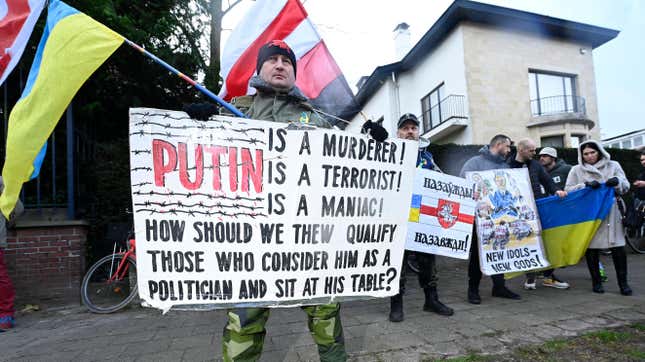
Russia has announced it’s taking action to partially block access to Facebook within the country, accusing the U.S. social media firm of “censoring” state media. The restrictions, announced on Friday, came as the sun set on the second day of Russia’s Ukraine invasion.
In a statement, Roskomnadzor, Russia’s communications and tech regulator, claimed Facebook had restricted the accounts of four Russian media outlets, restrictions it claims violate Russian law. The regulator said it had sent messages to Meta demanding the company lift the alleged restrictions and provide explanations for why they were introduced. Russia claims Meta never responded.
Going further, the statement revealed the Prosecutor General’s Office and the country’s Foreign Ministry made the extreme decision to recognize Facebook as being “involved in the violation of fundamental human rights and freedoms,” according to a translated version of the statement online. Without providing details, the government claimed Facebook has censored state media 23 times since October 2020.
Nick Clegg, Facebook’s newly named President of Global Affairs, addressed some of the regulator’s moves in a post shared on Twitter, claiming the regulator had asked Facebook to cease fact-checking and labeling of content from Russian state-owned media. “We refused,” Clegg said.
“Ordinary Russians are using our apps to express themselves and organize for action,” Clegg said. “We want them to continue to make their voices heard, share what’s happening, and organize through Facebook, Instagram, WhatsApp, and Messenger.
Meta did not immediately respond to Gizmodo’s request for comment on the blockage or for more details on its alleged efforts to restrict certain Russian media entities.
As of this writing, it’s unclear the extent to which Russia had limited access to Facebook. Gizmodo was still able to access Facebook’s homepage using a VPN with a Russian IP address and we were also able to access the Facebook pages of prominent U.S. publications like The New York Times.
The government’s efforts come amid signs of growing anti-war protests popping up around the country. On Thursday Russian police reportedly arrested more than 1,700 people protesting the military invasion, with the government detaining people in more than 50 cities. Blocked access to Facebook could make it more difficult for organizers to mobilize whithin the country.
Friday’s announcement also marks the latest in a long series of skirmishes between Russia and U.S.-based technology firms. In 2021, Russian authorities throttled Twitter internet speeds significantly after the company allegedly refused to remove 3,000 pieces of content the government viewed as unlawful. Then, last September, after facing fierce pressure from the government, Apple and Google both removed an app run by opposition leader Alexei Navalny. The two companies’ ubiquity across mobile means the app was essentially wiped from existence in the country. Not long after that, Russia threatened 13 mostly U.S. internet companies with expulsion if they did not set up local offices in the country by 2022, a move some feared would be used to strongarm the types of content allowed on those sites.